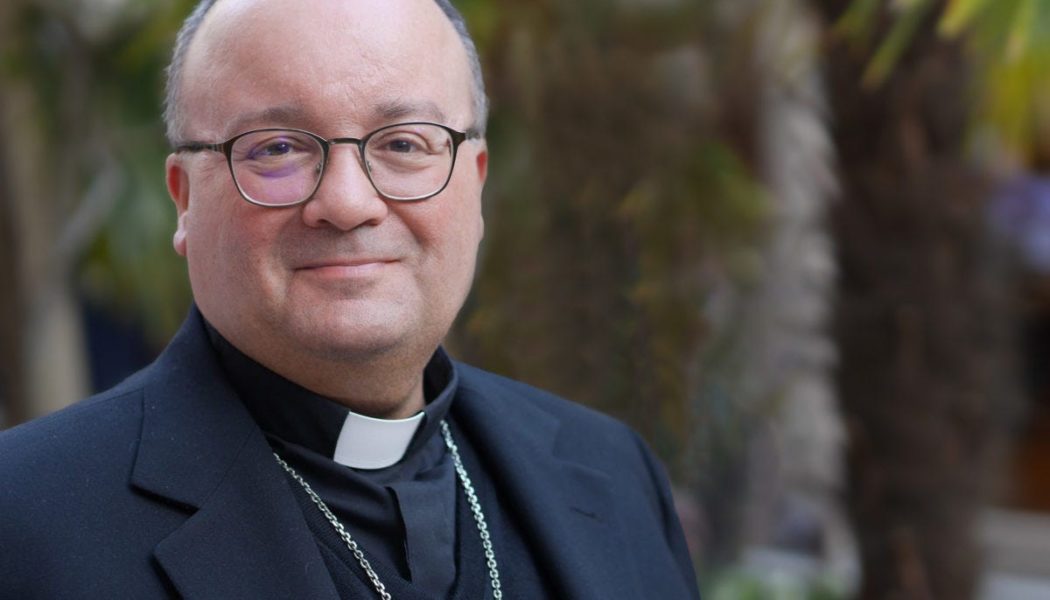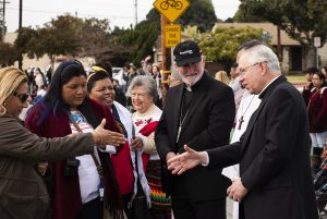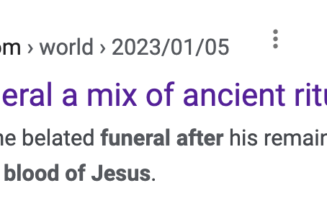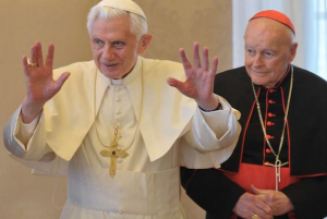When a senior Vatican official arrived in Peru last month to look into the affairs of the Sodalitium Christianae Vitae, journalists in Latin America and Rome began speculating that the controversial institute might soon be dissolved, closing years of allegations against the group’s founder and other ranking leaders, and more than five years of Vatican-appointed oversight of the institute.
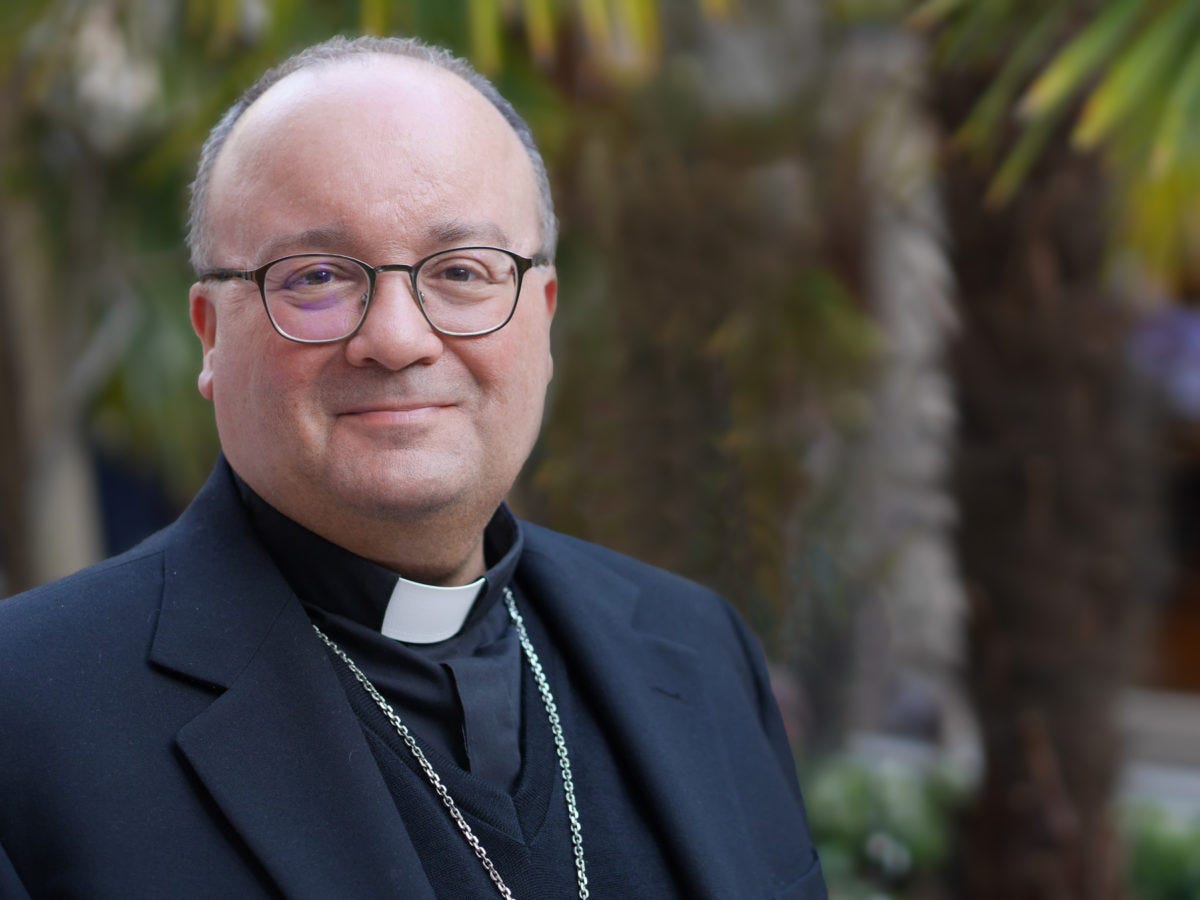
Indeed, the late July arrival of Archbishop Charles Scicluna in Lima has triggered speculation about the future of the Sodalitium, as the archbishop — head of the canonical disciplinary section of the Dicastery for the Doctrine of the Faith — is likely the Church’s most credible expert on clerical sexual abuse and misconduct, and an often-influential figure in the Roman Curia, and with Pope Francis.
But as the visitation now draws to a close, it seems unlikely that the probe will spur major changes to the institute. While it is possible that disgraced founder Luis Fernando Figari will be finally dismissed formally from the group — a society of apostolic life, in Church language — the tenor and scope of the investigation make it unlikely that broader changes will be coming.
The Sodalitium Christianae Vitae was founded in Peru in the early 1970s, as a movement of consecrated laymen and priests who make promises, which are not technically religious vows, and are directed toward a broad project of evangelization. The movement grew eventually to include a related association of women, and was in 1994 erected as a society of apostolic life, a canonical structure similar to a religious order.
In 1997, Pope St. John Paul II conferred “pontifical right” status on the Sodalitium, putting it directly under the oversight of the Congregations for Institutes of Consecrated Life at the Holy See.
But criticism of the movement’s spirituality and ethos emerged in the early 2000s, with allegations that Figari had committed sexual, physical, and psychological abuse within the community.
In 2011 and 2013, allegations that Figari had sexually abused minors and adults had been received by the Archdiocese of Lima. And the publication of a 2015 book, “Half Monks, Half Soldiers” sparked broader criticism of the organization, with more allegations against Figari, and the claim that the group’s approach to formation and obedience was coercive, manipulative, or abusive. In 2016, a commission found that several Sodalitium practices — many of them connected to a cult of personality surrounding Figari — were abusive, and should be stopped. It counted multiple victims of that abuse, including former members who say their formation was deeply scarring.
A 2017 report commissioned by the SCV documented more than 60 victims of abuse, and the group established a fund to offer compensation to victims.
After a Vatican-ordered investigation, Figari was in 2017 prohibited by the Vatican from having any contact with the members of the SCV, and from appearing in public.
But at the same time, the Holy See began a series of moves aimed at reforming the Sodalitium Christianae Vitae.
In May 2016, Cardinal Joseph Tobin was appointed a Vatican delegate to oversee reform of the institute’s governance, formation, apostolic work, finances, and governing documents.
While the Sodalitium is generally regarded as conservative, and Tobin is often tagged as a progressive, the appointment seemed to be fruitful, according to sources close to the dicastery for religious, with Tobin taking considerable time with the institute’s leadership, and with younger members who were not directly influenced by Figari.
In 2018, the Vatican appointed a Colombian prelate, Bishop Noel Antonio Londoño, to serve as “commissary” to the SCV, while Tobin remained involved in its reform, especially on the financial front. Soon after, in early 2019, the institute elected new, younger leadership.
Later in 2019, papal advisor Fr. Gianfranco Ghirlanda, SJ, who is now a cardinal, also was tapped for involvement with the Sodalitium — the renowned canon lawyer and Francis confidante was appointed to oversee a reform of the constitutions, or governing documents of the institute, along with a revision to the plan of formation for aspirants to the SCV.
Along with Ghirlanda, Fr. Guillermo Rodríguez was appointed by the Vatican as a papal delegate, charged with overseeing the reforms.
There are fewer than 200 members of the Sodalitium Christianae Vitae, it is — by the standard of many religious communities — quite small.
But once the extent of Figari’s abuse became known, Pope Francis seems to have given particular attention to the institute, and entrusted its reform to some of his closest advisors and collaborators — Tobin and Ghirlanda, especially.
While Tobin has not spoken publicly about his work with the group, Ghirlanda has. The cardinal has said that the efforts to create new foundational documents for the SCV have gone well, and told collaborators in the Vatican that the institute has been compliant with the requests and suggestions it has received from the Vatican-appointed figures involved in its reformation.
According to sources close to the Vatican’s dicastery for religious, the SCV has been slotted to approve new governing and formation documents — largely drafted by Ghirlanda — at a general chapter in early 2025. The documents are now undergoing consultation before approval, including with the relevant Vatican officials.
Given the Vatican’s years-long investment in reforming the Sodalitium Christianae Vitae — an investment of time from ranking Vatican experts close to the pope — it seems unlikely that the pope’s mind has changed on a dime, and that he intends to shift his approach from reform to dissolution — especially given that the reforming process seems nearly at an end.
But it is possible.
The visitation was announced just weeks after a parliamentary report in Peru detailed allegations of sexual abuse and misconduct in the SCV, and allegations of their coverup, including by some current members. The SCV has denied the allegations of cover up.
It is also worth noting that sources say Ghirlanda himself has expressed surprise at the announcement of a visitation, suggesting that he did not recommend it, and that it did not come as a result of the internal reform process he is shaping.
But while Scicluna reportedly met in Peru with victims and journalists critical of the SCV, his meetings with actual members of the institute suggest that dissolution was not on the table.
Media attention has focused on the abuse perpetrated by Figari, but sources close to the apostolic visitation say that Scicluna did not.
Instead, members of the institute who met with Scicluna and his collaborator in Peru — Monsignor Jordi Bertomeu — were reportedly asked only a few perfunctory questions about the financial administration of the institute during their meetings, along with general questions about their vocations.
They were not asked, according to sources, about the recent parliamentary report, or asked more broadly about sexual or psychological abuse in the institute. Nor where they asked their views on the SCV’s future, or about how they might transition if the institute were to be dissolved.
And sources close to the institute say that Scicluna was reassuring during his meetings with SCV officials, indicating to them that their current reform process would be continued.
Those reports do not indicate the prospect of an institute on the verge of suppression.
Instead, they suggest that the current apostolic visitation will likely resolve without recommending major changes to the institute — though it is possible that Scicluna could recommend the final expulsion of Figari from the institute, and possible censures, or expulsion, for other long-standing and senior leaders close to Figari.
In fact, the expulsion of Figari might well be seen to lend finality to the Vatican’s censure of the SCV — and the dismissal of other members would certainly indicate that concerns have been taken seriously. Those moves could be seen as making the planned reform measures more credible.
But if the visitation were likely to end in suppression, there probably would have been more questions about the current state of the institute, and fewer indications that things would proceed as normal. There also would have likely been discussion about how, or whether, the priest members of the institute could incardinate elsewhere — a topic which was not reportedly broached by Scicluna.
It is also worth noting that the visitation seems to have been conducted publicly — rather than under the pontifical secret as is more typical — by design. That choice may well be a Vatican to reassure critics that it’s taking their concerns seriously — which could be an important strategic consideration if the pope does not intend to acquiesce to calls for the SCV’s suppression.
Of course, the archbishop has not yet filed a report with the pope, but the tenor of his engagement in Peru does not immediately suggest that the Vatican’s reform plans for the SCV have been thrown out the window.
A broader question, worth asking, is whether the Vatican’s reform efforts with the SCV have actually worked.
While sources close to the SCV say the organization has undergone a major shift, and complied with all the Vatican’s directions, some journalists in Rome and Peru say that little has actually changed, and that the effects of Figari’s abuse within the SCV has not yet been sufficiently addressed.
There are dueling narratives in the media, and it’s worth noting that those may stem from the direct experiences of journalists with the SCV — several Vatican, Peruvian, and Catholic journalists both critical and supportive of the institution have direct personal experience with it.
[JD Flynn and Ed Condon, the founders of The Pillar, worked previously for Catholic News Agency, whose executive director was Alejandro Bermudez, a consecrated member of the SCV. Since before The Pillar’s launch, neither Flynn nor Condon has had contact with Bermudez, who is himself no longer employed by Catholic News Agency.]
Indeed, The Pillar has heard broadly divergent accounts from Catholics close to the Sodalitium, or connected to it.
Some current members say the SCV is changing, while former members and associates who say they’ve been scarred by the institute are skeptical the changes are real. Some say that an old guard formed by Figari is unwilling to accept that culture needs to change, while others say that generation of members no longer exercises influence on the institute’s daily life. Some sources in the institute say that recent years have been like a breath of fresh air, while others call that just the later PR spin from an institution committed to self-protection and self-preservation.
In fact, there is probably truth in all of those viewpoints. If the SCV is really in the midst of a transition, or an internal reform process, it should not be surprising that there are both strains of progress and strains of resistance.
Ghirlanda, of course, who has supported reform efforts, is not naive to that reality. Neither is Scicluna.
But which strains will prevail?
Can a once-dysfunctional institute actually be completely reformed? Is the Sodalitum a case study in success, or a hard-won lesson about the improbability of reform?
That depends on who you ask.
For his part, the pope has tasked some of the Church’s most influential figures with finding the facts, and assessing that future. But it is not clear that he has decided — or is likely to decide — to move forward on a path toward suppression.
Comments
Services Marketplace – Listings, Bookings & Reviews
